Coral reefs are dying, with major consequences for both humans and wildlife
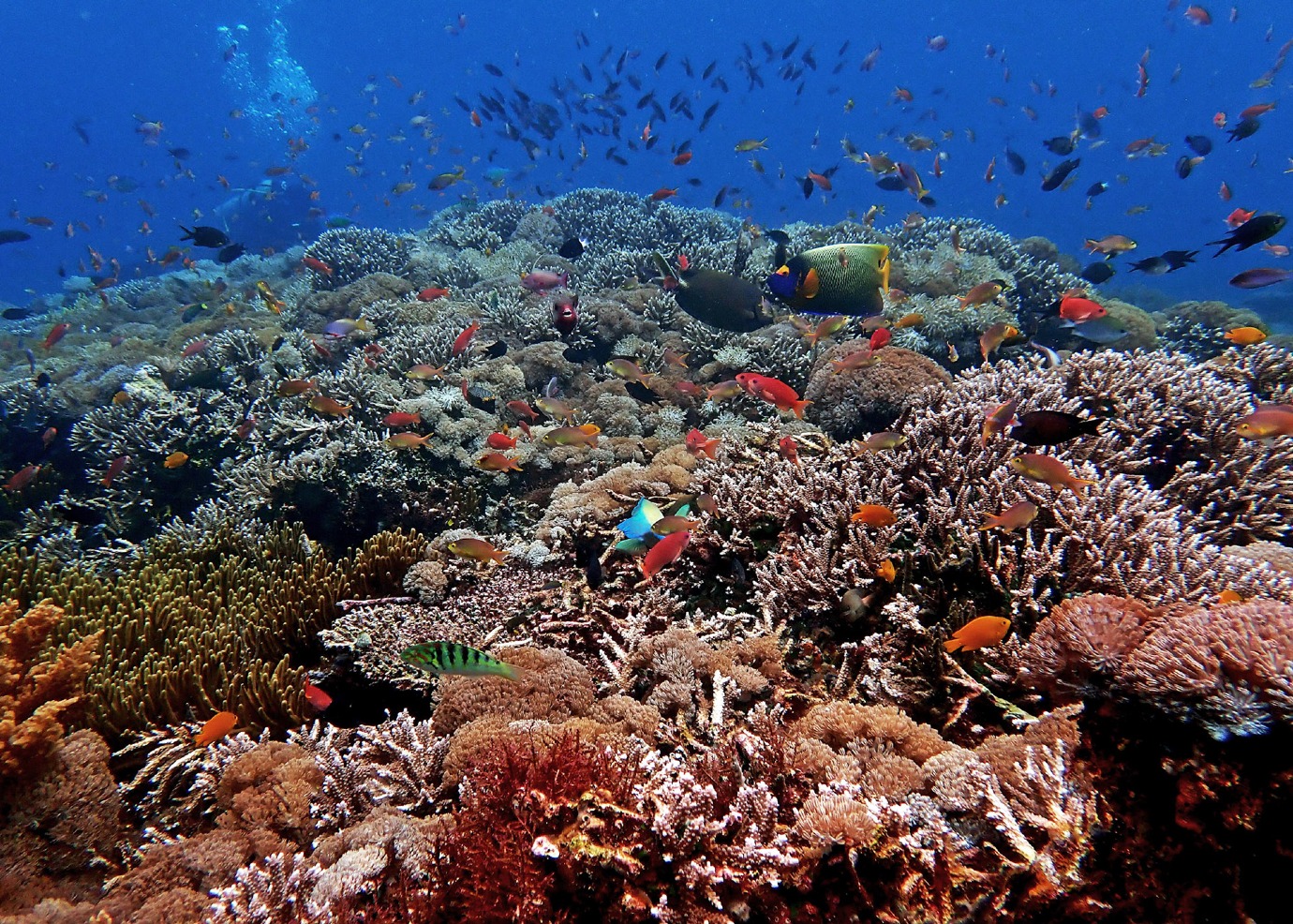
Last week, scientists reported that coral reefs worldwide are dying off so rapidly that we have now reached the first climate tipping point. Sancia van der Meij, marine biologist at the University of Groningen, researches various species inhabiting coral reefs and is deeply concerned. ‘Humans are changing the world so quickly that corals can’t keep up anymore.’
FSE Science Newsroom | Charlotte Vlek
‘Coral reefs are resilient. They’ve survived for millions of years,’ Van der Meij explains. ‘The reefs we see today often date back thousands or even tens of thousands of years, having originated after the last ice age.’ However, when sea temperatures rise too high due to climate change, the special symbiosis that gives coral reefs their vibrant colours comes to an end. Coral relies partly on algae for nutrients (and colour), which in turn benefit from the coral’s strong, protective outer layer.
Coral reefs are like the rainforests of the ocean, being home to countless species
Last week's report on climate tipping points states that we have now reached the point where seawater is too warm, causing corals to expel their algae, which results in bleaching and death. Consequently, many animals lose their natural habitat. Van der Meij: ‘Coral reefs are like the rainforests of the ocean, being home to countless species. Many species can coexist in a small space on a reef, forming close partnerships. The disappearance of a host species, such as corals, but also sponges or anemones, inevitably leads to the decline, or even disappearance, of the species that rely on them.’
Van der Meij and her team are studying the variety of small animals that live alongside corals. Van der Meij: ‘We regularly discover new species unknown to science and study the ecological networks and food webs within coral reefs.’ The essence of her research is the interaction between hosts and the species that rely on them. ‘For example, we study small species, particularly crabs. They prove to be crucial for the ecosystem, since their eggs serve as food for other animals. They also help make certain food sources accessible to larger species.’
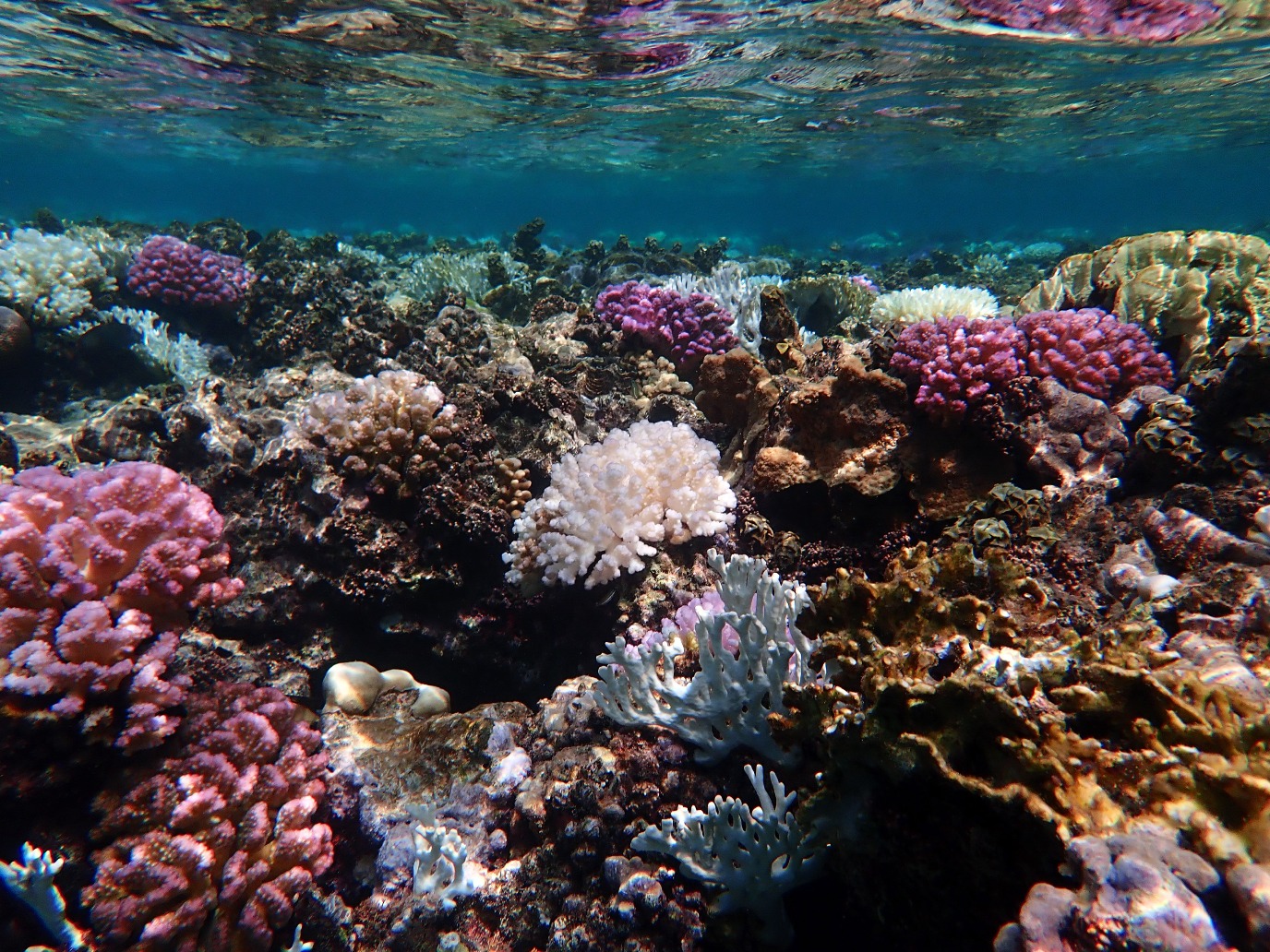
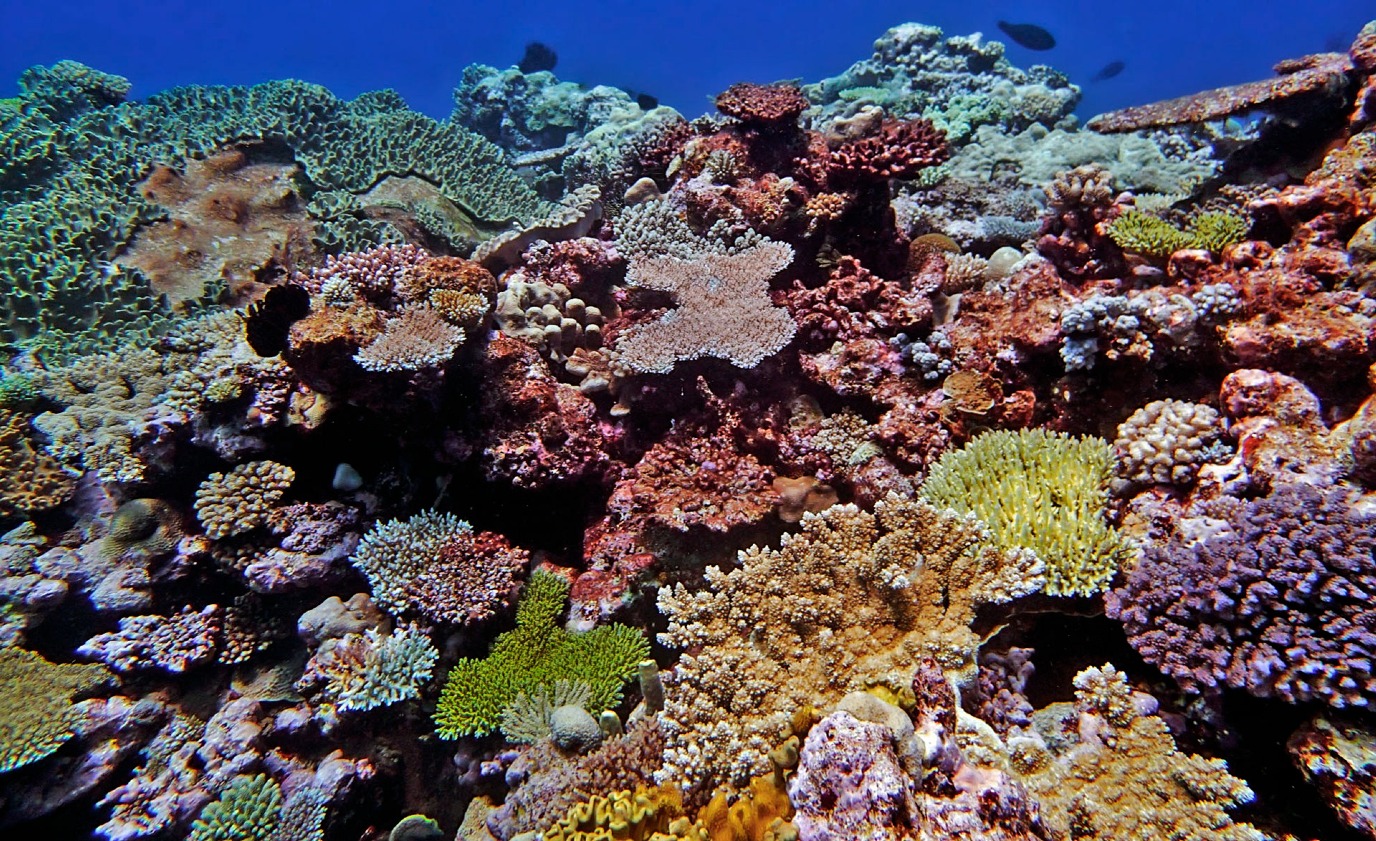
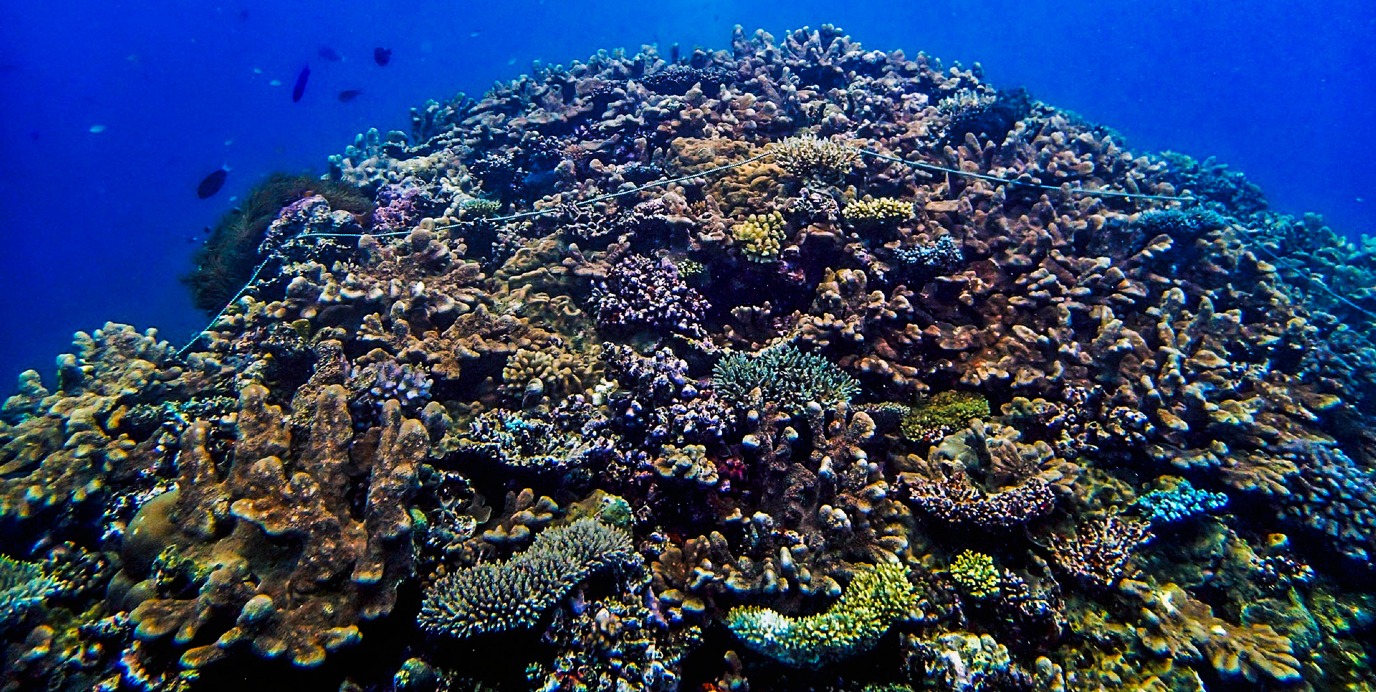
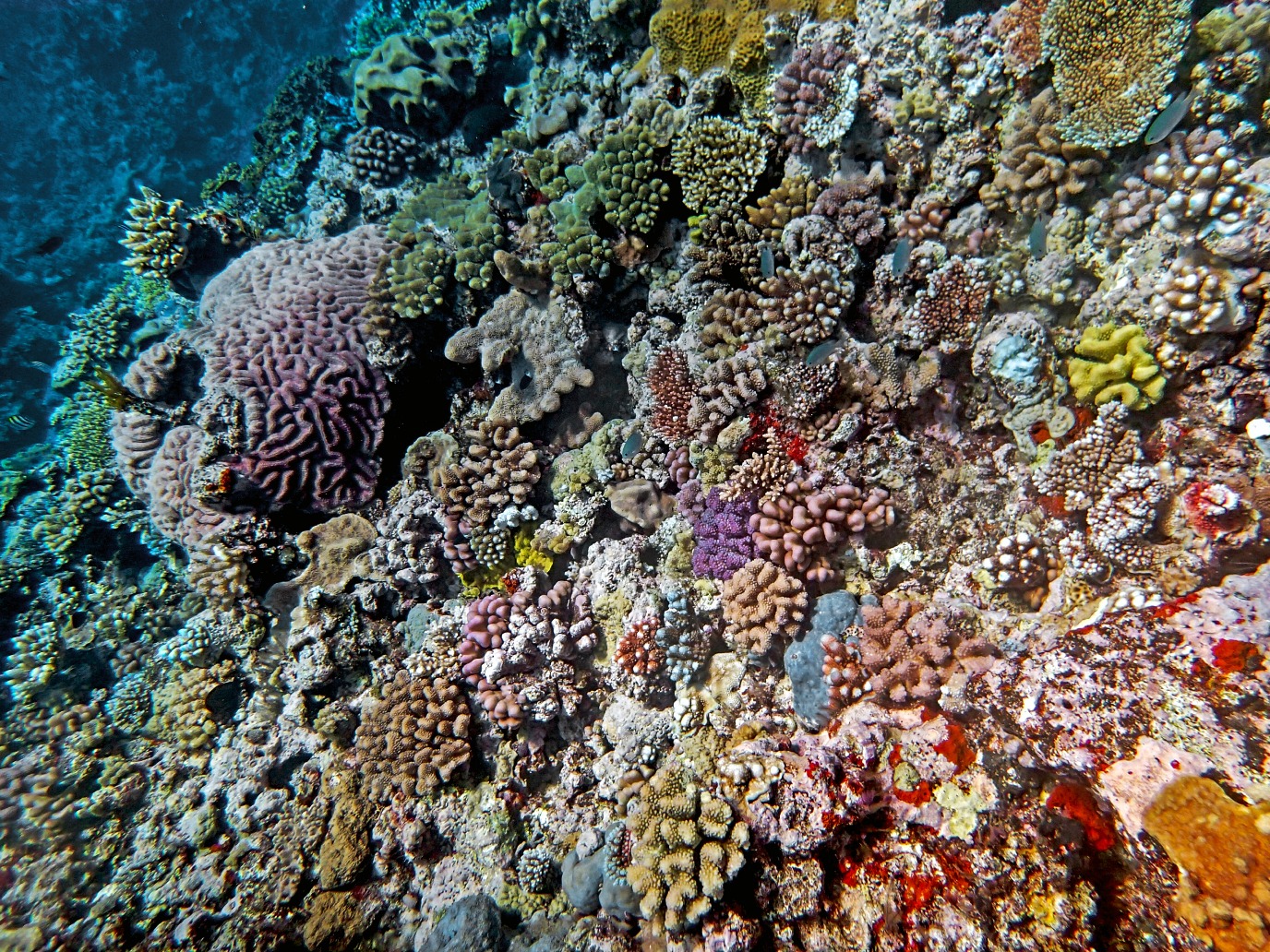
The importance for humans
Coral reefs already existed before the dinosaurs
Once corals disappear, countless species will be negatively impacted. The loss of coral reefs affects us too, says Van der Meij, even though the closest reefs are thousands of kilometres away from us: ‘Coral reefs are an important part of ocean health, and they are the breeding ground for all kinds of fish. In addition, an increasing number of valuable substances for the pharmaceutical industry are being found on coral reefs. They also protect millions of people in tropical coastal areas from storms and erosion, helping to prevent humanitarian crises and migration pressure.’
‘Coral reefs already existed before the dinosaurs,’ says Van der Meij. ‘Those early reefs consisted of coral species different from those found today. Large extinction events caused their disappearance several times, after which new reef builders, such as today’s stony corals, took their place. Extinction waves, in themselves, are natural, but they could go on for millions of years. But this time, it’s humans who are changing the world in just a few decades. Nature simply can’t keep up.’
More news
-
29 January 2026
Microplastic research - media hype or real danger?
-
27 January 2026
ERC Proof of Concept grant for Maria Loi
